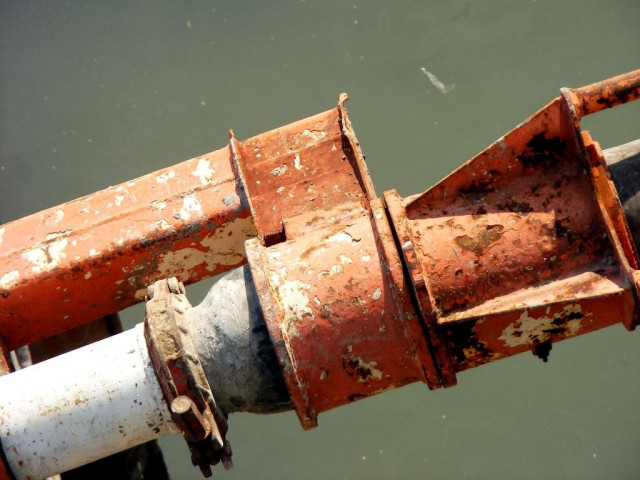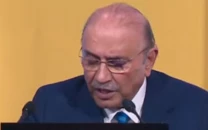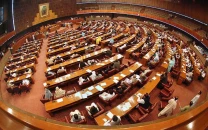Iran gas pipeline: Pakistan uses US opposition as bargaining chip
Islamabad presses Washington to grant civilian nuclear deal.

The government has apparently decided to use Washington’s opposition to the Iran-Pakistan gas pipeline as a bargaining chip to persuade the United States to grant Pakistan a civilian nuclear deal similar to the one between the US and India.
At the recently concluded strategic dialogue between the US and Pakistan on energy, the United States had made it clear that it opposed Pakistan’s decision to import gas from Iran, even going so far as to threaten sanctions if Pakistan did not withdraw from the deal.
Sources close to Water and Power Minister Naveed Qamar said that Pakistani officials then used that opposition as an opportunity to press once again for a civilian nuclear power deal. Qamar was leading the Pakistani delegation during the talks held in Islamabad.
“The US did not respond to Pakistan’s demands,” said sources familiar with the discussions, adding that it is not yet clear as to whether or not Pakistan would end up shelving the Iran gas pipeline project if the US provided assistance with nuclear power plants.
Pakistan faces a chronic power shortage, sharpened to some degree by the depletion of the nation’s own gas reserves. The last major discoveries of gas fields were in the 1990s and were not enough to replace the depletion of the much larger gas fields that were discovered much earlier in the 1950s.
The US has proposed that Pakistan pursue the gas pipeline deal with Turkmenistan, Afghanistan and India, known as the TAPI pipeline. While Pakistan has welcomed US support for the project, Islamabad views TAPI as insufficient for the country’s rapidly growing energy needs.
The government estimates that the power crisis in the country reduces economic growth by between 2% and 2.5% of gross domestic product every year. Supplies from Iran could go a long way towards helping to mitigate that crisis.
There are also several technical reasons why gas supplies from Iran are likely to be far cheaper than those from Turkmenistan.
The Iranian gas pipeline would connect the Pakistani gas hub at Nawabshah with the South Pars gas field in the Persian Gulf, which is by most estimates, the largest in the world. Larger gas fields tend to be far cheaper to extract gas from, since a smaller number of wells need to be dug to extract larger amounts of gas, requiring a smaller initial investment and smaller operating costs.
Turkmenistan’s gas reserves in the Caspian, while significant, are not as big as those of Iran, and certainly do not have any gas fields that approach anywhere near the size of the South Pars field.
In addition, the negotiations for the TAPI pipeline are still at a relatively early stage and have hit several snags, largely due to disputes over pricing and even completing feasibility studies.
“Turkmenistan has yet to provide audited certification of gas reserves, which has been pending for several years,” said one source familiar with the negotiations.
Another potential problem might be the insurance costs for the pipeline, likely to be driven to prohibitively high levels due to the fact that the pipeline passes through Afghanistan, currently in the midst of an intense Taliban insurgency.
Other hurdles include the fact that the countries have yet to finalise a gas price or sign the gas sales purchase agreement.
Developing coal
Gas and nuclear energy, however, are not the only sources of power that Pakistani officials spoke to US officials about. “Islamabad also asked the US to extend support to exploit coal reserves,” said one source.
The Thar coal reserves in Sindh are estimated to be the third largest in the world, by some measures. The Sindh government has been trying to develop them since the early 1990s but has only recently developed partnerships with private sector firms, such as the Engro Corporation, to do so.
(Additional input by farooq tirmizi)
Published in The Express Tribune, September 19th, 2011.



















COMMENTS
Comments are moderated and generally will be posted if they are on-topic and not abusive.
For more information, please see our Comments FAQ